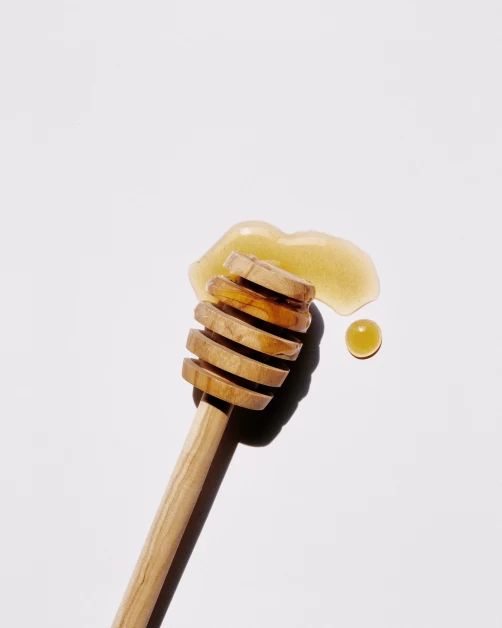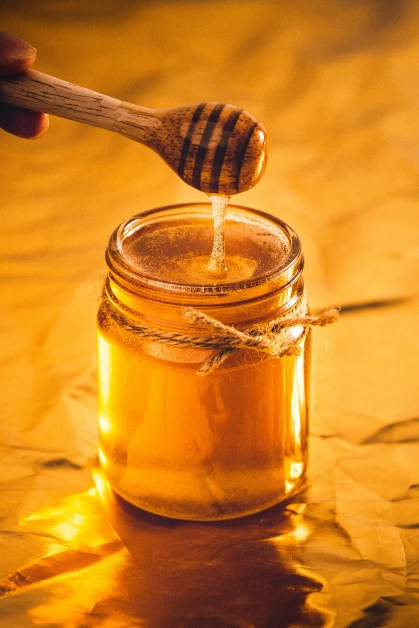Table of Contents
Manuka honey is a unique type of honey that has gained popularity for its potential health benefits. In this article, we will explore the use of manuka honey for dental health. From its wound-healing properties to its ability to prevent dental plaque, manuka honey offers a range of benefits for oral health.
Introduction
Manuka honey, which is produced in New Zealand, is known for its unique properties and high nutritional content. It is often used as a natural remedy for various health conditions, including wound healing, sore throat relief, and gut health support. However, its benefits for dental health are also worth exploring. In this article, we will delve into the potential benefits of manuka honey for dental health.
The UMF Trademark
The UMF (Unique Manuka Factor) trademark is an important quality assurance for manuka honey products. It is given to registered licensed beekeepers, producers, and exporters of genuine manuka honey. When purchasing manuka honey, it is essential to look for the UMF trademark on the label to ensure its authenticity and quality.
The Nutritional Profile of Manuka Honey
Before we delve into the specific benefits of manuka honey for dental health, let’s take a look at its nutritional profile. One teaspoon of manuka honey provides approximately 33 kcal/137 KJ of energy, 8.4g of carbohydrates, and 8.2g of sugar. It is important to note that honey, including manuka honey, is considered a “free” sugar, which should be consumed in moderation as part of a balanced diet.
Top 10 Health Benefits of Manuka Honey for Dental Health
- Supports Wound Healing
Manuka honey is well-known for its wound-healing properties. When applied directly to wounds, it supports the healing process and reduces pain. The antimicrobial, antioxidant, and anti-inflammatory properties of manuka honey contribute to its effectiveness in tissue regeneration, superficial partial thickness burns, diabetic ulcers, eyelid wounds, and post-surgery.
- Soothes a Sore Throat
The combination of honey and lemon has long been used as a remedy for coughs and colds. Studies have shown that honey is more effective at alleviating a cough in children than over-the-counter cough suppressants. Honey, including manuka honey, has been recommended by health authorities as a first-line treatment for reducing the symptoms of a short-term cough.
- Supports Gut Health
Manuka honey acts as a prebiotic, providing non-digestible carbohydrates known as oligosaccharides. These carbohydrates serve as a food source for beneficial gut bacteria, such as bifidobacteria and lactobacilli, promoting their growth and maintaining a healthy gut microbiome.
- Soothes Gastric Ulcers
Studies have demonstrated the potential of manuka honey to protect against the damaging effects of gastric ulcers. Its anti-inflammatory properties, ability to manage infections like helicobacter pylori, and protective effects on the gut mucosa contribute to its potential in soothing gastric ulcers.
- Helps with Gastroenteritis
There is evidence to suggest that manuka honey, particularly its antibacterial properties, may help treat gut infections caused by bacterial strains like clostridium difficile. Notably, it appears to shorten the duration of symptoms such as diarrhea.
- Offers Antiviral Properties
Laboratory studies have shown that manuka honey can efficiently inhibit influenza viruses. It has also demonstrated significant activity against shingles in test tube studies. However, further research, including human trials, is needed to draw firm conclusions about its antiviral properties.
- Effective Against Antibiotic-Resistant Infections
The rise of antimicrobial resistance has led to the search for alternative therapies. Medical-grade honey, including manuka honey, has shown promise in treating multidrug-resistant infections, providing a potential solution to this growing concern.
- Prevents Dental Plaque Build-up
Contrary to what one might expect, manuka honey’s antibacterial properties make it a suitable food for dental health. Studies suggest that these properties can minimize the build-up of dental plaque, reducing the risk of gingivitis and other periodontal diseases. Manuka honey inhibits the growth of less favorable oral bacteria, such as Porphyomonas gingivalis.
- Helps Manage Cystic Fibrosis
The potent antibacterial properties of manuka honey have shown potential in augmenting the effects of antibiotics in cystic fibrosis patients with upper respiratory infections. By inhibiting the growth of bacteria like pseudomonas aeruginosa and burkholderia, manuka honey may serve as a valuable treatment strategy in the future.
- Effective Against Inflammatory Skin Conditions
In addition to its well-known wound-healing properties, manuka honey is being studied for its effects on other skin disorders, including rosacea and acne. Test tube studies have shown that honey can modulate the immune system of the skin, but further research is needed to determine its potential as a treatment for a wider range of skin conditions.
A Healthy Portion of Manuka Honey
While manuka honey offers numerous health benefits, it is important to consume it in moderation due to its high sugar content. A maximum of two teaspoons (15g) per day is recommended as a good portion size. Incorporating manuka honey into a balanced diet by drizzling it over porridge, overnight oats, or natural yogurt is a great way to enjoy its benefits without excessive sugar intake.
How to Buy the Best Manuka Honey
When purchasing manuka honey, it is essential to look for certain indicators of authenticity and quality. Firstly, check that the honey is from New Zealand, as this is where genuine manuka honey is produced. Look for the UMF stamp and trademark on the label, as this ensures that the honey is produced by registered and licensed beekeepers, producers, and exporters. The UMF rating, such as 10+ or 25+, indicates the level of unique signature compounds, methylglyoxal (MG) and dihydroxyacetone (DHA), present in the honey. The higher the number, the greater the purity and potency of the honey.
Safety Considerations
While honey is generally safe for most adults, there are certain precautions to keep in mind. Individuals with allergies to honey or bees should avoid consuming manuka honey. People with diabetes should be mindful of their blood sugar levels when consuming manuka honey due to its high sugar content. It is important to note that honey should not be given to children under the age of one year as it may contain bacteria that can cause serious illness in infants.
Conclusion
Manuka honey offers a range of potential benefits for dental health. From its wound-healing properties to its ability to prevent dental plaque, manuka honey can be a valuable addition to a dental care routine. However, it is important to consume manuka honey in moderation due to its high sugar content. When purchasing manuka honey, look for the UMF trademark and rating to ensure its authenticity and quality. As with any health-related decision, it is advisable to consult with a healthcare professional if you have any concerns or questions about the suitability of manuka honey for your specific situation.
Keywords: manuka honey for dental health, UMF trademark, nutritional profile of manuka honey, health benefits of manuka honey, wound healing, sore throat relief, gut health support, gastric ulcers, gastroenteritis, antiviral properties, antibiotic-resistant infections, dental plaque prevention, cystic fibrosis management, inflammatory skin conditions, healthy portion of manuka honey, how to buy the best manuka honey, safety considerations.


